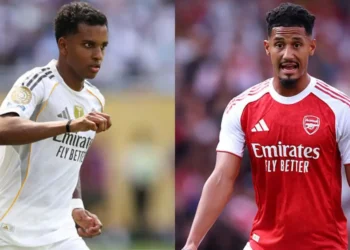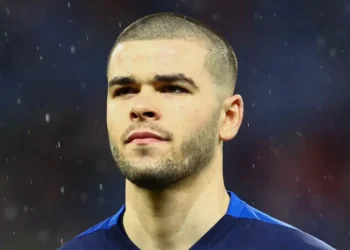In a move that has caught the attention of football fans worldwide, Cristiano Ronaldo has reportedly turned down a potential move to Saudi Arabian giants Al Hilal. The Portuguese superstar, currently playing for Al Nassr, has been at the center of numerous transfer rumors in recent months, especially given the surge in Saudi Pro League’s efforts to attract top-tier talent. However, Ronaldo’s decision to reject Al Hilal is significant for several reasons—both personally and in the broader context of the sport.
The Background: Al Hilal’s Ambitions
Al Hilal, widely considered one of the most successful clubs in Asia, has been aggressive in their transfer strategy. Backed by substantial financial resources, they’ve made waves by signing global superstars like Neymar Jr., Kalidou Koulibaly, and Sergej Milinković-Savić. The club’s ambition is clear: dominate domestically and win the AFC Champions League while elevating the Saudi Pro League’s global profile.
Cristiano Ronaldo, arguably the most recognizable footballer on the planet, has been a long-term target for Al Hilal. Reports suggest that the club was willing to offer Ronaldo a lucrative deal, possibly exceeding the $200 million per year contract he signed with Al Nassr in late 2022. Yet, despite this staggering offer and Al Hilal’s top-tier status, Ronaldo said no.
Ronaldo’s Commitment to Al Nassr
Since joining Al Nassr, Ronaldo has been instrumental in transforming the club’s profile and the Saudi league’s appeal. His debut season may have been mixed in terms of silverware, but he has been consistently delivering on the pitch, both in goals and leadership. More importantly, his presence has opened the floodgates for other big names to join the league.
Ronaldo’s refusal to move to Al Hilal signals a strong sense of loyalty to Al Nassr. Despite being rivals, Al Hilal and Al Nassr have both benefited from the increased attention the Saudi Pro League has received, but Ronaldo’s decision ensures he remains the face of Al Nassr’s project. He seems invested not just in playing football, but in helping shape the league’s future from within a club that gave him the initial opportunity to pioneer this new phase in his career.
A Statement of Control and Legacy
By turning down Al Hilal, Ronaldo has also sent a message about control. At 39 years old, he no longer needs to chase titles to prove his greatness. He’s won virtually everything there is to win—five Ballon d’Ors, five UEFA Champions League titles, league titles in England, Spain, and Italy. Every move he makes now is about legacy, influence, and personal satisfaction.
Saying no to Al Hilal, even for what was likely a record-breaking offer, reinforces Ronaldo’s narrative: he’s not just a football mercenary chasing money or trophies. He wants to build something meaningful. For him, Al Nassr is not just a team; it’s a mission.
Implications for Saudi Football
This rejection isn’t a blow to Al Hilal as much as it is a redefining moment for Saudi football. It shows that even in a market increasingly driven by money, players like Ronaldo are thinking beyond financial gain. It also reinforces the idea that loyalty and project involvement matter.
That being said, Al Hilal will undoubtedly continue to attract top talent. Their financial clout and recent signings prove that they are still a dominant force. But the fact that they couldn’t convince the league’s biggest name to switch sides indicates that players might now be weighing more than just salary when considering their moves to Saudi clubs.
What’s Next for Ronaldo?
Ronaldo remains a key figure at Al Nassr and has expressed no desire to retire any time soon. With the UEFA Euro 2024 around the corner, he will once again lead Portugal into battle, potentially his last major international tournament. Back in the Middle East, he’ll continue to headline Saudi football, drive fan engagement, and contribute to the growing competitiveness of the league.
His decision to stay put might also influence younger players, reinforcing the importance of building legacies and long-term relationships with clubs rather than bouncing from one project to another for quick wins.
Final Thoughts
Cristiano Ronaldo saying no to Al Hilal is about more than just a failed transfer—it’s a declaration of intent. It highlights his loyalty, his long-term vision, and his desire to leave a lasting impact both on and off the pitch. For Al Nassr, it’s a victory of retention. For Saudi football, it’s a lesson in evolution. And for football fans, it’s yet another reminder tha
t Ronaldo is playing the long game.











